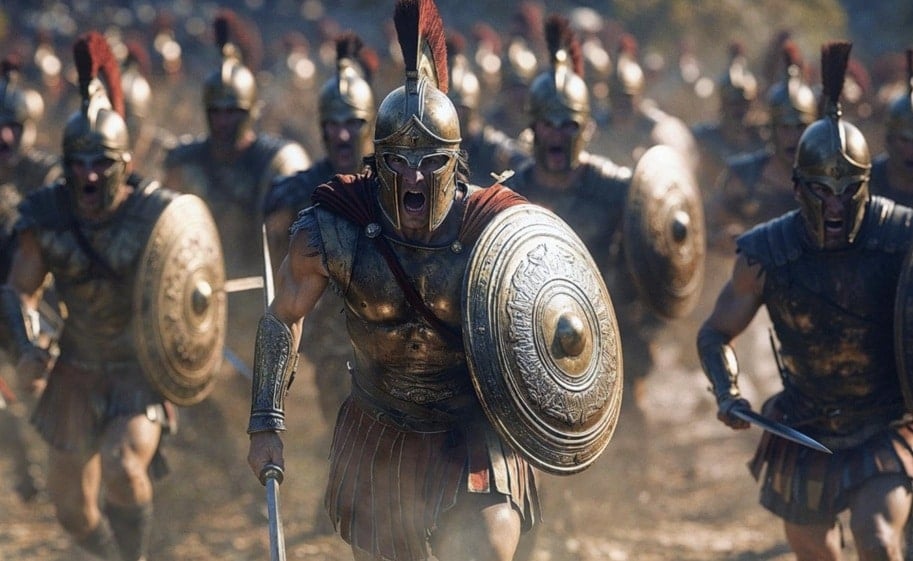

Yiannis Stravolaimos, the Greek director behind Nenikikamen (“We Have Won”), is spearheading a pioneering cinematic endeavor. Set against the backdrop of the 490 BC Battle of Marathon, the film is a meticulous recreation in Ancient Greek and Old Persian, aiming to authentically transport audiences into the heart of classical antiquity.
This ambitious project marks a cinematic milestone as the first feature entirely performed in these ancient languages, ensuring historical accuracy and making a bold statement in contemporary filmmaking.
Drawing from primary sources like Herodotus, Plutarch, and Pausanias, Nenikikamen not only chronicles the historic battle but also integrates mythological elements, portraying figures like Miltiades, Themistocles, and Persian leaders such as Darius and Artaphernes. This blend of history and myth reflects the ancient Greeks’ worldview, where gods and heroes shaped their understanding of events.
The film boasts a diverse cast of Greek and international actors, including Kostis Savvidakis and Konstantinos Konstantopoulos. To maintain linguistic precision, the dialogue of foreign actors will be expertly dubbed in Ancient Greek and Old Persian.
Beyond its cinematic scope, Stravolaimos envisions Nenikikamen as a form of cultural diplomacy, showcasing Greece’s rich linguistic and historical heritage to foster global appreciation for ancient civilizations. By leveraging the medium of film, the project aims to educate and unite audiences worldwide.
Currently in production, Nenikikamen promises to be a landmark in historical cinema, preserving ancient languages and narratives for contemporary audiences.
The film’s title, Nenikikamen, derives from a legendary moment in Greek history following the Battle of Marathon, where a messenger, often identified as Pheidippides, declared “We have won!” before collapsing from exhaustion.
According to Herodotus, the ancient historian, Pheidippides (or a similar professional runner, known as a hemerodromos, or day-long runner) was actually sent from Athens to Sparta, a journey of around 240 kilometers (150 miles), to request military aid before the battle.
This run took two days, and Herodotus describes it in detail, including an episode where the god Pan supposedly appeared to Pheidippides, asking why the Athenians didn’t worship him.
This iconic event, whether historical or mythological, symbolizes sacrifice and resilience, themes that resonate through the ages and inspired the modern marathon race.
In Stravolaimos’ adaptation, this pivotal moment is a poignant climax, delivered in the Attic dialect to underscore themes of victory, determination, and the enduring quest for freedom. Through Nenikikamen, the film bridges ancient heroism with universal values, demonstrating how history continues to inspire and shape our contemporary world.
Related: The Battle of Marathon Saved Western Civilization 2,500 Years Ago
